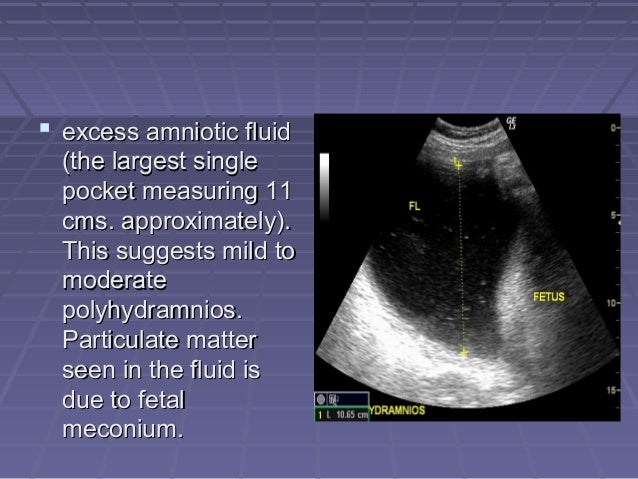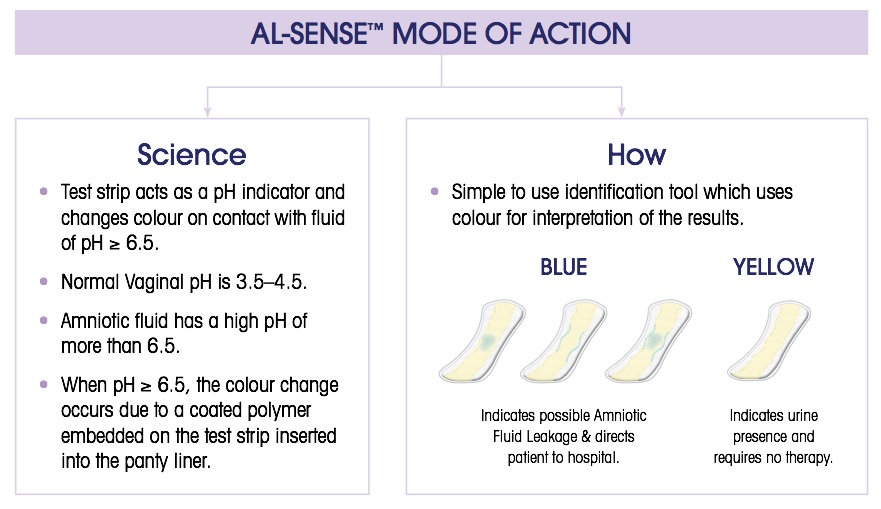
You can learn more about how we ensure our content is accurate and current by reading our editorial policy. We link primary sources - including studies, scientific references, and statistics - within each article and also list them in the resources section at the bottom of our articles. Medical News Today has strict sourcing guidelines and draws only from peer-reviewed studies, academic research institutions, and medical journals and associations.
the placenta separating from the uterus. exposure to harmful substances, including tobacco, illicit drugs, and alcohol. It can also be a sign of a condition that can pose risk to the growing baby. medical conditions, such as lung disease and Ehlers-Danlos syndrome Leaking amniotic fluid may be a sign that the mother is preparing to deliver. a urinary tract infection (UTI) or sexually transmitted infection (STI). cerclage, a procedure where doctors stitch the cervix closed until the baby is ready for delivery. the amniocentesis needle making a hole that takes too long to heal. contractions that put pressure on the amniotic sac, causing it to tear. Women who got pregnant less than 6 months after their last labor or are carrying more than one baby have a higher risk of PROM. If the amniotic sac breaks before the 37th week of pregnancy, doctors refer to it as preterm PROM. Sometimes, the amniotic sac breaks or leaks before labor starts. For most women, it is more likely to feel like a constant trickle. People often refer to this as the water breaking.Īccording to the American Pregnancy Association, just one in 10 women will experience a “dramatic gush” of amniotic fluid. If the liquid is amniotic fluid, it is unlikely to stop leaking. It will usually be clear and odorless but may sometimes contain traces of blood or mucus. The amniotic sac ruptures when a woman goes into labor. Leaking Amniotic sac - Wikipedia fluid might feel like a gush of warm fluid or a slow trickle from the vagina. If the dye shows up on the pad, this can indicate leaking amniotic fluid. They may also perform a dye test, which involves introducing blue dye into the amniotic sac and asking the woman to wear a sanitary pad. An ultrasound can help doctors check how much fluid is surrounding the baby. These tests could include a vaginal exam to see if the cervix is dilating and the woman is in labor. They may also carry out tests to determine the cause of the leak. While waiting for medical attention, a woman should not use tampons, have sex, or do anything else that might introduce bacteria into the vagina.Ī doctor may take a sample of the fluid to determine whether it is amniotic fluid. a decrease or lack of increase in weight. 
foul-smelling, brown or green discharge from the vagina.Women who also experience the following symptoms should seek medical attention too:

If the fluid does not appear to be urine or discharge, it is best to speak to a doctor. Call your doctor if you have fluid leaking from your vagina.Share on Pinterest A person should consult a doctor if they suspect that they are leaking amniotic fluid. When your bag of waters ( amniotic sac) breaks, amniotic fluid will leak from your vagina. Fluid leaking from the vaginaįluid leaking from the vagina may be a sign that labor is starting. Also, talk with your doctor before you use any nonprescription medicines to treat a yeast infection. If they are, your provider may induce labor.

This will reduce the chance of spreading a possible infection to your partner. Between 32-36 weeks: Your provider may test your amniotic fluid to see if your baby's lungs are mature enough for him to breathe on his own. Note: If you have symptoms of a pelvic infection or think you may have an STI, do not have sexual intercourse until you see your doctor. BV or an STI can affect your pregnancy, so be sure to talk with your doctor and get treatment. You can also have abnormal vaginal discharge with problems such as bacterial vaginosis (BV) or sexually transmitted infections (STIs). If you are pregnant and have abnormal vaginal symptoms, such as vaginal discharge or itching, talk with your doctor about your symptoms before using home treatment measures or nonprescription medicines.Ībnormal vaginal discharge may look like a symptom of a vaginal yeast infection.

Changing hormone levels during pregnancy can affect the normal balance of organisms in the vagina.








 0 kommentar(er)
0 kommentar(er)
